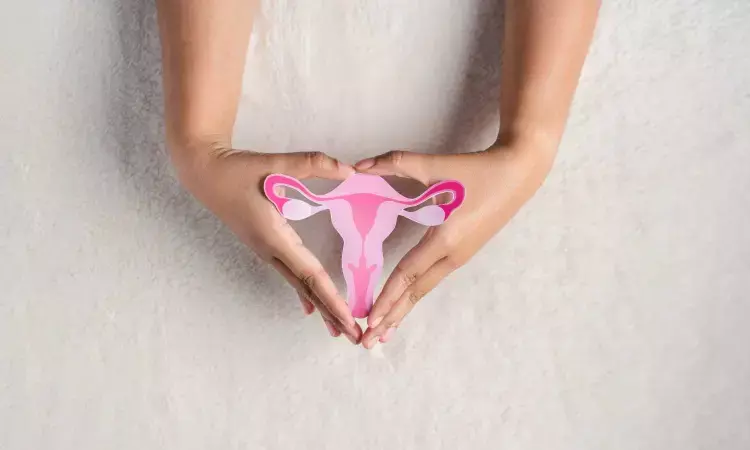- Home
- Medical news & Guidelines
- Anesthesiology
- Cardiology and CTVS
- Critical Care
- Dentistry
- Dermatology
- Diabetes and Endocrinology
- ENT
- Gastroenterology
- Medicine
- Nephrology
- Neurology
- Obstretics-Gynaecology
- Oncology
- Ophthalmology
- Orthopaedics
- Pediatrics-Neonatology
- Psychiatry
- Pulmonology
- Radiology
- Surgery
- Urology
- Laboratory Medicine
- Diet
- Nursing
- Paramedical
- Physiotherapy
- Health news
- Fact Check
- Bone Health Fact Check
- Brain Health Fact Check
- Cancer Related Fact Check
- Child Care Fact Check
- Dental and oral health fact check
- Diabetes and metabolic health fact check
- Diet and Nutrition Fact Check
- Eye and ENT Care Fact Check
- Fitness fact check
- Gut health fact check
- Heart health fact check
- Kidney health fact check
- Medical education fact check
- Men's health fact check
- Respiratory fact check
- Skin and hair care fact check
- Vaccine and Immunization fact check
- Women's health fact check
- AYUSH
- State News
- Andaman and Nicobar Islands
- Andhra Pradesh
- Arunachal Pradesh
- Assam
- Bihar
- Chandigarh
- Chattisgarh
- Dadra and Nagar Haveli
- Daman and Diu
- Delhi
- Goa
- Gujarat
- Haryana
- Himachal Pradesh
- Jammu & Kashmir
- Jharkhand
- Karnataka
- Kerala
- Ladakh
- Lakshadweep
- Madhya Pradesh
- Maharashtra
- Manipur
- Meghalaya
- Mizoram
- Nagaland
- Odisha
- Puducherry
- Punjab
- Rajasthan
- Sikkim
- Tamil Nadu
- Telangana
- Tripura
- Uttar Pradesh
- Uttrakhand
- West Bengal
- Medical Education
- Industry
Use of Chemical hair relaxer linked to development of uterine cancer

Chemical hair relaxers are heavily marketed to, and commonly used by, Black women to straighten curly or tightly coiled hair. These products are only loosely regulated and are known to contain potentially harmful ingredients, including chemicals known as endocrine disruptors which can be absorbed via inhalation or through the skin. Prior studies have linked these chemicals to a wide range of women’s reproductive health outcomes.
A new study by researchers at Boston University’s Black Women’s Health Study (BWHS) has reported that long-term use of chemical hair relaxers by postmenopausal Black women was associated with increased risk of uterine cancer. Compared to women who never or rarely used hair relaxers, those who reported using hair relaxers more than twice a year or for more than five years had a greater than 50% increased risk of uterine cancer.
“Our study suggests that moderate and heavy use of chemical hair relaxers may be associated with higher risk of uterine cancer among postmenopausal Black women. In addition, there are major racial disparities in uterine cancer. Compared to non-Hispanic white women, Black women have higher rates of aggressive subtypes of uterine cancer and are nearly twice as likely to die from their disease,” said corresponding author Kimberly Bertrand, ScD, associate professor of medicine at Boston University Chobanian & Avedisian School of Medicine.
The researchers asked nearly 45,000 women in the BWHS who had no prior history of cancer and an intact uterus about their past use of chemical hair relaxers. They then followed the women for up to 22 years and compared rates of uterine cancer among women who reported frequent or long-term use of hair relaxers to rates among women who never or rarely used hair relaxers. They found that, among postmenopausal women, rates of uterine cancer were statistically significantly higher for those who commonly used hair relaxers even after adjustment for other potential risk factors.
According to the researchers, these findings highlight the importance of continued research regarding the potential adverse health effects of exposure to chemical hair relaxers and their constituents. “Black women are often underrepresented in health research and may have unique exposures that contribute to disparities in disease. This study fills an important gap in knowledge about the potential health effects of hair relaxer use, which is very common in Black women,” said Bertrand who also is an epidemiologist at BU’s Slone Epidemiology Center.
The researchers hope these results will raise awareness of the potential toxic effects of these products and promote efforts to reduce exposure. “Importantly, identification of safer alternatives to straightening hair, stricter regulation of cosmetic products, and policies to prohibit discrimination against natural hair such as the CROWN Act could represent important steps toward reducing racial disparities in uterine cancer.”
Reference:
Kimberly A. Bertrand, Lauren Delp, Patricia F. Coogan, Yvette C. Cozier, Yolanda M. Lenzy, Lynn Rosenberg, Julie R. Palmer, Hair relaxer use and risk of uterine cancer in the Black Women's Health Study, Environmental Research, https://doi.org/10.1016/j.envres.2023.117228.
Dr Kamal Kant Kohli-MBBS, DTCD- a chest specialist with more than 30 years of practice and a flair for writing clinical articles, Dr Kamal Kant Kohli joined Medical Dialogues as a Chief Editor of Medical News. Besides writing articles, as an editor, he proofreads and verifies all the medical content published on Medical Dialogues including those coming from journals, studies,medical conferences,guidelines etc. Email: drkohli@medicaldialogues.in. Contact no. 011-43720751


